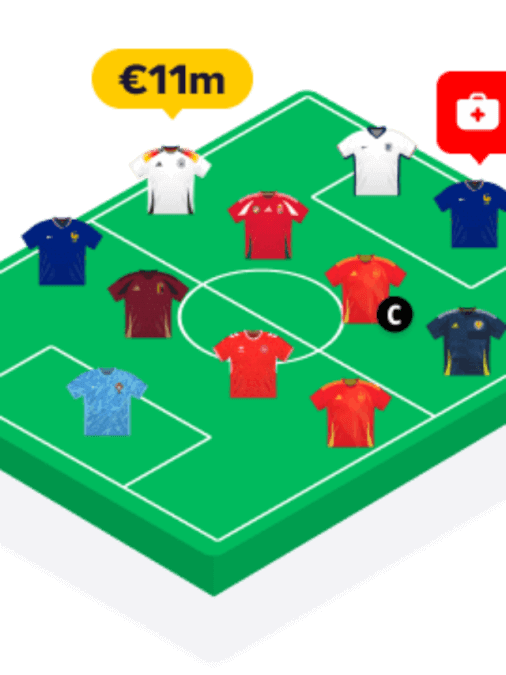Nutrition is vital for the development and performance of young footballers. As their bodies grow and are constantly active, fostering healthy eating habits is crucial for their performance on the pitch and overall well-being.
Parents and coaches play an essential role in guiding young athletes toward healthier food choices that benefit their sporting pursuits and daily life.
In this article, we’ll explore practical tips and strategies for promoting healthy eating habits in young footballers.
1. Understanding the Basics of Healthy Eating
Before diving into strategies for promoting healthy eating, it’s essential to understand what constitutes a healthy diet for young athletes. A balanced diet includes a variety of foods that provide necessary nutrients to fuel the body.
Macronutrients and Micronutrients
| Nutrient Type | Role in Young Athletes |
|---|---|
| Carbohydrates | Primary energy source; fuels intense training and matches. |
| Proteins | Essential for muscle growth and recovery. |
| Fats | Important for long-term energy and overall health. |
| Vitamins & Minerals | Support immune function, bone health, and recovery. |
For a deeper understanding of how these macronutrients work, check out our article on Understanding Macronutrients: What Carbs, Proteins, and Fats Do for Young Athletes. Additionally, you can learn about the importance of hydration in young athletes for optimal performance.
2. Tips for Parents and Coaches
Lead by Example
One of the most effective ways parents and coaches can promote healthy eating habits is by modeling these behaviors themselves.
When children see adults making healthy food choices, they are more likely to emulate them. Incorporating nutritious foods into family meals can help reinforce the importance of healthy eating.
Explore our article on Healthy Family Cooking: Fun Recipes for Young Footballers and Their Families for easy, nutritious meal ideas that everyone can enjoy together.
Create a Positive Eating Environment
Establishing a positive atmosphere around food can make a significant difference. Encourage family meals where everyone participates in the cooking and eating process.
Engaging in discussions about food choices and their health benefits can help young footballers understand the importance of nutrition.
For more information, check out our piece on Building a Winning Breakfast: Start Your Day Like a Champion, which highlights the importance of a nutritious start to the day.
Educate on Nutrition
Providing children with age-appropriate information about nutrition can empower them to make healthier choices. Utilize resources like engaging books or videos that explain the benefits of healthy eating in a fun and informative way.
For further insights into nutrition education, consider our article on Nutrition Myths in Youth Football: Debunking Common Misconceptions.
3. Strategies for Dealing with Picky Eaters
Introduce Foods Gradually
Picky eating is common among children. To help them expand their palates, introduce new foods gradually. Pair unfamiliar foods with familiar ones, making the transition smoother.
For more ideas on making healthy foods appealing, check our article on Top 10 Energy-Boosting Foods for Young Footballers.
Make Healthy Foods Fun
Presentation matters! Making healthy foods visually appealing can entice young athletes to try new options. Consider creative presentations, like arranging fruits and vegetables into fun shapes or colors.
You might find ideas in our article on Snack Ideas for the Sidelines: Healthy Options for Young Players.
Offer Choices
Empower young footballers by allowing them to choose from a selection of healthy foods. This approach gives them a sense of control over their eating habits, making them more likely to try new items.
Additionally, exploring how to enjoy treats while staying fit can create a balanced view of food that fosters healthy choices.
4. Fostering a Love for Healthy Food
Explore New Flavors and Cuisines
Encouraging children to try foods from different cultures can enhance their appreciation for diverse flavors.
Organize family cooking nights where you prepare healthy recipes from around the world, making it an educational and enjoyable experience. Discover smart nutrition for young footballers to help guide meal planning.
Celebrate Healthy Food
Incorporating healthy foods into sports activities can make eating nutritious meals exciting. For example, consider hosting themed meals or food tastings featuring healthy snacks for game day.
This can reinforce the idea that eating well can be both fun and beneficial. Our guide on Post-Game Recovery: The Best Foods to Recharge Young Athletes provides tips on nutritious snacks ideal for after a match.
Positive Reinforcement
Recognizing and praising children when they make healthy food choices can motivate them to continue those behaviors. Consider implementing a reward system (non-food-related) for trying new foods or sticking to healthy eating habits.
5. Incorporating Healthy Eating into Football Culture
Nutrition Education Workshops
Organizing nutrition education workshops for parents and players can provide valuable information and resources.
Engaging local nutritionists to facilitate these workshops can enhance understanding of proper nutrition.
In our article about The Importance of Proper Nutrition for Young Footballers, we discuss the significance of nutritional education for young athletes.
Healthy Snack Options at Events
Advocating for healthy snacks during training sessions and games can shift the culture towards nutritious eating.
Encourage clubs to provide healthy options at events, reinforcing the importance of nutrition. For more on snack ideas, refer to our article on Healthy Snack Ideas for the Sidelines.
Collaborate with Nutritionists
Working alongside nutritionists can help tailor dietary advice specifically for young athletes. This collaboration can ensure that both players and parents receive accurate and practical nutritional guidance.
Consider our piece on Sports Supplements for Young Footballers: What’s Safe and What’s Not to understand how to safely incorporate supplements when necessary.
Conclusion
Fostering healthy eating habits in young footballers is a joint effort between parents, coaches, and the athletes themselves.
By modeling good practices, creating supportive environments, and providing education on nutrition, we can help young players develop a lifelong appreciation for healthy eating.
As they grow into their roles as athletes, the benefits of these habits will translate into improved performance and overall health.
For a comprehensive look at the connection between nutrition and mental focus in young athletes, check out our article on The Connection Between Nutrition and Mental Focus in Young Athletes.
Key Takeaways
| Key Point | Description |
|---|---|
| Model Healthy Eating | Parents and coaches should lead by example to encourage healthy choices. |
| Create a Positive Environment | Foster an atmosphere where healthy eating is celebrated and supported. |
| Educate Young Athletes | Provide age-appropriate nutritional education to empower better choices. |
| Introduce Foods Gradually | Help picky eaters by introducing new foods slowly and creatively. |
| Celebrate Nutrition in Sports | Incorporate healthy eating into football culture through events and workshops. |
By nurturing these healthy eating habits, we can significantly impact the future success of young footballers both on and off the field.









